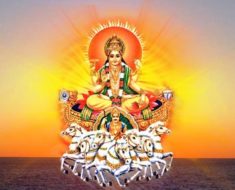Buddha Poornima also is known as Buddha Jayanti is the most auspicious festival of Buddhists. It is also known as Vaisakh, Buddha’s birthday. Buddha Poornima is considered as a festival among Buddhists. Buddha Poornima Festival falls on the full moon in Vaisakh month according to Hindu calendar and usually in April/ May as per the Gregorian calendar.
Buddha Poornima Festival commemorates Lord Buddha and three important events related to him. It is believed that his birth, his enlightenment beneath Pipal tree and his death( also called Nirvana) took place on Buddha Poornima. It is celebrated every year at the various Buddhist pilgrimage sites all over the world such as Shrilanka, Tibbat, China, Thailand, Vietnam, Nepal etc. This festivity is especially colourful in Bodhgaya and Sarnath in Bihar (India). It is a gazetted holiday in India and some other countries. Since it is one of the oldest originated festivals, rituals and traditions vary according to the locality.
Celebrations and Rituals of Buddha Poornima Festival
People celebrate this Buddha Poornima Festival very peacefully and show their faith to five principles of Lord Buddha( called Panchsheel). On this great day variety of social, cultural and religious events and ceremonies are arranged to honour Buddha’s exemplary life. Devotees participate in the celebration ceremonies like prayer, lectures on the Buddha life history, religious scripture recitation, meditation and procession.
Religious people come from all the corners of the world to Boddha Gaya(Bihar) to get participated in Buddha Poornima celebration. People go to worship by offering flowers, fruits, incense etc. They also offer holy water to the statue of Lord Buddha and enlight candles & Diyas. They perform a ritual of’ Abhishek’ through the milk and scented water on the Boddhi tree and place candles/ Diyas around it.
Conventionally, Buddhists are pure vegetarians. Those who are not vegetarians do not serve meat or fish on this day. Buddhist people donate money, food and other necessary goods to the poor and needy. Caged animals are escaped (free) by devotees to signify the message of freedom/liberty of each and every livings as per Buddhism. Mahabodhi temple is decorated using flowers, colourful flags & papers and other things. At this special day, people wear white clothes and eat & distribute ‘Kheer ( a sweet dish made of milk and rice) ‘.
Special Note on Celebration Date
Buddha was an influential spiritual teacher during and after his life. Festivals were held for many centuries to honour Buddha. The decision to celebrate ‘Vaisakh’ as the Buddha’s birth anniversary was formalized at the first conference of the ‘ World Fellowship of Buddhists’ held in Colombo(Shrilanka) in May 1950. The date was fixed as the day of the full moon in May. When there is two full moon day in May, different Buddhists community may celebrate Buddha Poornima on different dates. This is because of the interpretation of Buddhist calendar in different ways.
About Lord Buddha
The Buddha, the founder of the great religious philosophy of Buddhism lived between 563 and 483 BC. However, the time of Buddha’s birth and death is uncertain but most historians date his life between 563 and 483 BC. His father, King Suddhodana ruled over Kapilvastu. His mother’s name was Mahamaya (who was the princess of Koliyas). His childhood name was Siddhartha Gautam.
At the age of 16, he was married to princess Yashodhara after finishing his education. The couple had a baby( boy) named Rahul. When Siddhartha was 29 years old, he left from his kingdom and went to study the ultimate nature of reality. After wandering 6 years he went to Bodhgaya near the Niranjana river and sat beneath a Pipal tree.
After 49 days continuous meditation he got “ Enlightenment’. He preached far and wide and founded Buddhism. Lord Buddha vowed eight-fold paths— Right view, right intention, right speech, right action, right livelihood, right effort, right mindfulness and right concentration.
He realized that physical austerities were not the means to achieve liberation. He encouraged the people to follow a path of balance rather than extremism. According to Buddhism, sorrow and desire are the main cause of all the evils and suffering of the world.
Buddha means ‘ enlightened person’ – someone who is completely free from all faults and mental obstructions. In north India Buddha is considered as the 9th carnation of Vishnu. Most people consider Lumbani(Nepal) as the birthplace of Buddha. He died at the age of 80 at Kushinagar, Utter Pradesh( India). Bodhgaya, Kushinagar, Lumbani and Sarnath are the most important pilgrimage site for Buddhists.

![Bakrid Festival : A Festival of Sacrifice [Eid-Ul-Zuha]](https://www.champarandiaries.com/wp-content/themes/sociallyviral/images/nothumb-sociallyviral_related.png)
